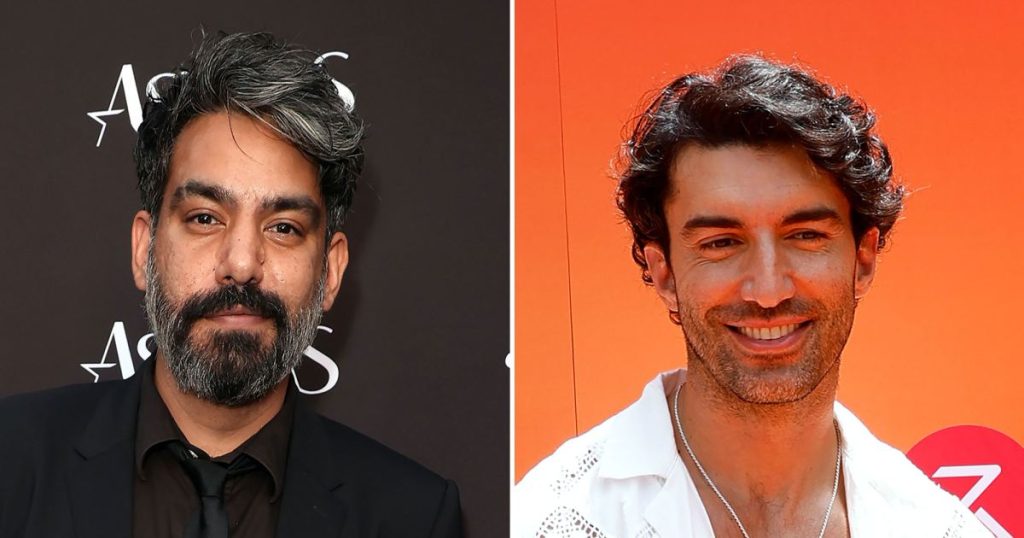The entertainment industry is grappling with the crucial issue of on-set safety, particularly concerning intimate scenes, sparked by Blake Lively’s recent lawsuit against Justin Baldoni. Actor Rahul Kohli, while not involved in the production of “It Ends With Us,” the film at the center of the controversy, has publicly emphasized the mandatory inclusion of intimacy coordinators on sets. He argues that their presence should be as standard as that of stunt coordinators, ensuring the safety and comfort of actors during sensitive scenes. Kohli criticizes the practice of placing the onus on actors, especially actresses, to request an intimacy coordinator, suggesting it unfairly burdens them and potentially exposes them to uncomfortable situations. He further posits that any resistance to working with an intimacy coordinator should be considered a red flag, raising concerns about the individual’s intentions and respect for professional boundaries.
Lively’s lawsuit alleges that Baldoni created a hostile work environment and disregarded industry protocols regarding intimate scenes during the filming of “It Ends With Us.” The lawsuit details specific instances where Baldoni allegedly improvised physical intimacy without prior consent or discussion, including an incident involving unwanted kissing. It highlights the lack of an intimacy coordinator on set during these instances, contributing to what Lively describes as a distressing and exploitative environment. The lawsuit further claims that Baldoni ignored a mutually agreed-upon plan established to address Lively’s concerns and ensure a safer working environment upon her return to filming. This plan explicitly included the presence of intimacy coordinators, emphasizing their recognized role in maintaining professional conduct and safeguarding actors’ well-being during vulnerable moments on set.
The legal action underscores a broader conversation in Hollywood about establishing clearer boundaries and protections for actors, particularly during the filming of intimate scenes. Lively’s statement emphasizes her hope that the lawsuit will contribute to increased transparency regarding retaliatory tactics against those who speak out about misconduct. Her aim is to protect others from similar experiences and foster a safer, more respectful industry culture. The controversy surrounding the film highlights a shift in Hollywood, where the presence of intimacy coordinators is becoming increasingly recognized as essential rather than optional, marking a move towards greater professionalism and actor safety.
Baldoni, through his lawyer, vehemently denies Lively’s allegations, characterizing them as false, outrageous, and intentionally salacious. His legal representation claims that Lively’s lawsuit is a strategic maneuver to repair her reputation and reframe the narrative surrounding the film’s production. They allege that Lively issued multiple demands and threats, including threatening to boycott promotional activities, potentially jeopardizing the film’s release. This countersuit constructs a conflicting narrative, presenting Lively as the instigator of the conflict and Baldoni as the victim of her manipulative tactics. The conflicting accounts underscore the complex dynamics at play and the difficulty in discerning the truth within the he-said-she-said nature of the dispute.
The fallout from the lawsuit has been significant for Baldoni. His agency, WME, which also represents Lively and her husband Ryan Reynolds, has dropped him. Additionally, Liz Plank, the host of his “Man Enough” podcast, has announced her departure, and Vital Voices, a women’s non-profit organization, has rescinded the Solitary Award recently presented to Baldoni. These repercussions reflect the seriousness with which the industry is taking the allegations and the growing intolerance for behavior that creates a hostile or unsafe work environment. The swift actions taken against Baldoni suggest a shift in power dynamics, where accusations of misconduct are increasingly leading to tangible consequences for the accused.
Conversely, several of Lively’s co-stars, including Jenny Slate and Brandon Sklenar, have publicly expressed their support for her. Slate commends Lively’s bravery in taking action and describes her as a leader and loyal friend. She characterizes the alleged attacks on Lively’s reputation as “terribly dark, disturbing, and wholly threatening.” This public display of solidarity underscores the complexities of the situation, with colleagues taking sides and offering contrasting perspectives on the events. The public support for Lively could influence public perception and potentially impact the trajectory of the lawsuit and its broader implications for the industry. The case highlights the power of collective action and the importance of supporting individuals who come forward with allegations of misconduct, fostering a culture of accountability and encouraging others to speak out against injustice.

